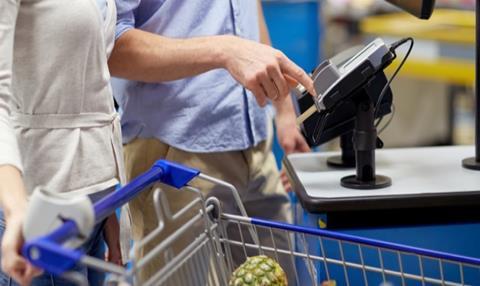UK market research firm Kantar has revealed that supermarket footfall fell over the four weeks to 9th June 2024, which it attributed to poor weather.

Take-home grocery sales had their slowest increase since June 2022, rising by 1% over the four weeks. The average shopper visited a supermarket 16.3 times during the month, down from 16.4 in June.
The rate of grocery price inflation fell to 2.1%, which Kantar said marked the sixteenth consecutive month that it has fallen.
Fraser McKevitt, head of retail and consumer insight at Kantar, commented: "The sixth wettest spring on record hasn't just dampened our spirits leading into summer, it's made a mark on the grocery sector too as it seems Britons are being put off from popping to the shops. We're not yet reaching for those typical summertime products and are making some purchases you wouldn't expect in June.
"The cost-of-living 'crisis' isn’t over – far from it. 22% of households say they’re struggling, meaning that they aren’t able to cover their expenses or are just making ends meet. However, there are positive signs that many of us no longer feel the need to restrict our spending quite so much, with lower inflation helping to ease the pressure on people’s pockets."
Grocery sales up for retailers
Online retailer Ocado was reported to be the fastest growing grocer for the fourth month in a row. Its sales increased by 10.7% over the 12 weeks to 9th June, ahead of the total online market, which saw sales rise by 4%. The retailer now holds 1.8% of the market, up 0.1% from 2023.
Tesco grew its market share by 0.6% to reach 27.7%, achieving its highest market share since February 2022. Sainsbury's accounted for 15.2% of the market as its sales rose by 4.9%.
Morrisons reported a sales increase of 1.1%, with its share hitting 8.7%. Iceland now holds 2.4% of the market, up from 2.3% a year ago.
Lidl increased its hold of the market by 0.4% to 8.1%, matching its sales growth for the latest 12 weeks. Fellow discounter Aldi, the fourth largest retailer by consumer spend, boosted sales by 0.8% and now has a share of 10%.
Waitrose grew its sales by 3.5% to hold 4.5% of the market, while Asda and Co-op held 12.8% and 5.5% respectively.















